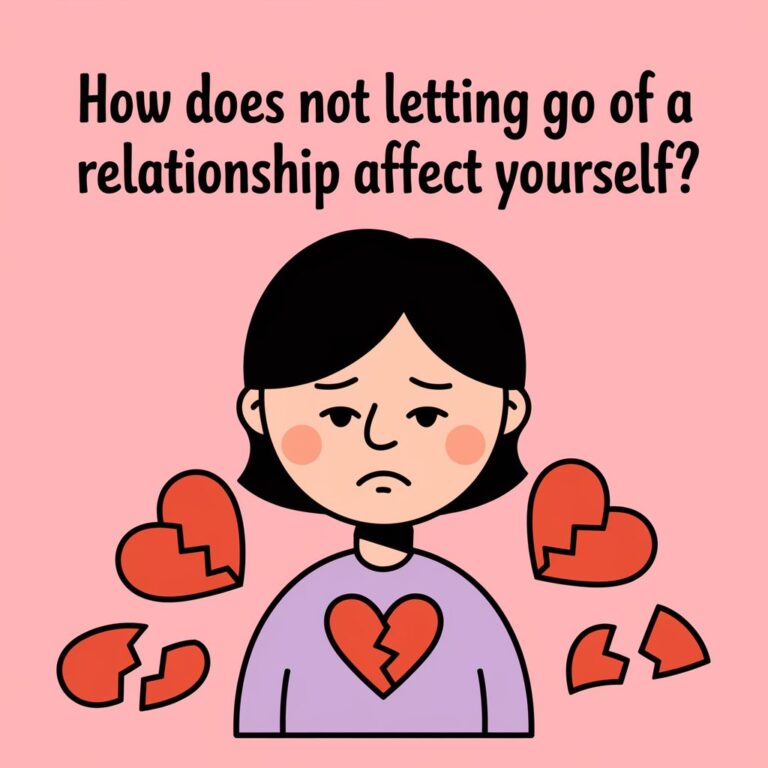How to tell your husband you want a divorce is one of the most emotionally intense questions a person can face. The moment you decide that your marriage is over—whether after months of counseling, years of quiet suffering, or a sudden revelation—it signals the start of an incredibly personal journey. Even if you’ve made peace with your decision, delivering the news is rarely easy. There may be pain, confusion, denial, or even anger on the other end. But the way you handle that conversation can shape the tone of your separation and life beyond.
This article offers a compassionate, thoughtful, and strategic guide to telling your husband you want a divorce. We’ll explore emotional preparation, timing, phrasing, and managing the aftermath, along with the legal and logistical steps to take next. Whether your relationship has been strained for years or you’ve simply grown apart, this guide will help you approach the conversation with clarity and courage.
Understand Why You’re Asking for a Divorce
Before you sit down with your husband, you must be clear on your reasons. Understanding why you’re ending the marriage is essential not just for your peace of mind, but also for communicating your decision effectively. Vague reasoning like “I’m just not happy” may be true, but it’s not always helpful in such a difficult conversation.
Reflect deeply and honestly:
- Is the relationship emotionally toxic?
- Have you outgrown each other emotionally or mentally?
- Are there unresolved betrayals or unmet needs?
- Have you tried therapy or open communication?
Being grounded in your reasons will help you stand firm, especially if your husband becomes defensive or tries to persuade you to stay.
Prepare Emotionally for the Fallout
Anticipate a range of emotional responses—from shock and sadness to anger, bargaining, or blame. Your husband might:
- Deny there’s a problem
- Try to convince you to stay
- Become emotionally overwhelmed or detached
- React with hostility
These are normal reactions. Mentally preparing for them helps you stay calm and compassionate during the conversation.
Also, ask yourself:
- What is the best possible outcome from this conversation?
- What emotional boundaries will you maintain?
- Will you need a support person (therapist, friend, sibling) available afterward?
This isn’t just a conversation—it’s an emotional storm. The more stable you are, the better you’ll navigate it.
Pick the Right Time and Place
Telling someone you’re ending a marriage is deeply personal. It deserves privacy, time, and focus. Do not bring this up during a heated argument, at a family gathering, or in a public space. Choose a neutral, quiet environment where interruptions are minimal.
Ideal moments might be:
- A weekend when the kids are away
- After work, not before
- In your living room or a private sitting area
Avoid texting, emailing, or leaving a note. If safety permits, do it face-to-face.
Craft What You Want to Say
It’s easy to get lost in emotion and ramble or become defensive. Prepare what you want to say in advance. Keep it respectful, honest, and firm.
Here’s a possible approach:
“I’ve been thinking about this for a long time, and it’s incredibly hard for me to say, but I need to be honest with you. I’ve reached a point where I believe we can no longer continue in this marriage. I want a divorce.”
Make “I” statements to avoid sounding accusatory. Stay focused on your decision rather than blaming him. Be ready for silence or pushback—and don’t feel pressured to over-explain.
Stay Firm but Compassionate
One of the most difficult parts of how to tell your husband you want a divorce is sticking to your decision, especially if he reacts emotionally or begs you to reconsider. You may feel guilt, grief, or a sudden rush of doubt.
But remember: Compassion doesn’t mean giving false hope. If your mind is made up, gently but firmly reaffirm your decision. You can say:
“I know this is painful, and I hate that it hurts you. But I’ve thought about it for a long time, and I’m sure this is what I need.”
Resist the urge to argue or justify. That’s not what this moment is for.
Anticipate Questions and Reactions
Your husband might ask:
- Is there someone else?
- When did you decide this?
- Can we fix it?
- What about the kids?
- What do we tell the family?
Be honest but measured. You don’t need to provide a detailed timeline or answer every question in the moment. You can say:
“This is a lot for both of us. I’m happy to talk more about the next steps in a few days once we’ve both had some time to process.”
If You’re Afraid to Tell Him
If you’re in an abusive relationship—emotionally, verbally, or physically—telling your husband you want a divorce could put you at risk. Your safety is the top priority.
In such cases:
- Make an exit plan in advance
- Notify a trusted friend or relative
- Contact a therapist, shelter, or legal advisor
- Speak to a Divorce Attorney in South Florida or your local area to understand your rights
You do not owe an in-person conversation to someone who might hurt you. Your well-being matters more than protocol.
When You Want to Separate First
If you’re not sure about divorce but know you need space, you might be wondering how to tell your husband you want to separate instead. This can be a gentler approach, especially when you’re unsure if the relationship can be saved.
You could say:
“I’ve been feeling disconnected and unsure about our marriage. I think we both need some time and space to reflect on what we want. I’d like to discuss a separation.”
This opens the door for reflection, therapy, or trial separation while still respecting your emotional needs.
What If He’s Completely Blindsided?
Sometimes, especially in long or one-sided relationships, your husband may have no clue you’re unhappy. If this is the case, the conversation may hit him like a truck.
Be kind. Avoid blaming. Acknowledge the shock.
“I know this might feel sudden for you. I didn’t want to hurt you, and I wish there were an easier way to do this. But it’s something I’ve been carrying for a long time, and I needed to finally be honest with you—and with myself.”
The key is delivering honesty without cruelty.
How to Ask for a Divorce Without Starting a War
If you’re dreading conflict, you may wonder how to ask for a divorce in a way that avoids confrontation. Here are a few principles to guide you:
- Speak calmly and without blame
- Avoid past arguments or rehashing old issues
- Focus on your future, not his failures
- Set boundaries for continued conversations
Remember, you’re starting a process—not finishing it in one conversation. Let it evolve.
If You’re Still in Love With Him
Yes, this happens. Many women face the painful contradiction of still loving their husband but knowing the marriage is unsustainable.
In such cases:
“I care deeply for you, and part of me always will. But I don’t think we’re able to give each other what we need anymore. Staying in this relationship isn’t fair to either of us.”
Loving someone doesn’t always mean staying. It means honoring truth.
If You’re the Husband Reading This
Though this article is centered on women, many husbands seek the same guidance. If you’re wondering how to tell your wife you want a divorce, the same principles apply—clarity, respect, and emotional readiness. Regardless of gender, honesty with empathy is the best path forward.
Legal Considerations After the Conversation
Once the initial conversation is over, the real work begins. Consider your next steps carefully:
- Contact a divorce attorney
- Gather financial documents (bank statements, property, debt)
- Begin discussing custody if children are involved
- Consider mediation or collaborative divorce if possible
Hiring a Divorce Attorney in South Florida or your area ensures your rights and interests are protected from the start.
Dealing with Guilt and Emotional Whiplash
Even if you’re sure about divorcing, emotional backlash is normal. You may question your decision, especially if your husband responds with sorrow or kindness.
Remind yourself:
- You’re not selfish for wanting happiness
- You’re not heartless for setting boundaries
- It’s okay to grieve a marriage even as you leave it
Talk to a therapist. Journal your thoughts. Allow yourself space to process.
Life After Saying It
Telling your husband you want a divorce is only the first of many steps. But it’s also a pivotal one. It sets the tone for your exit, your healing, and your new beginning.
You are not alone. Countless women before you have thought, “I’m divorcing my husband, and I don’t know what comes next.” But they made it. And so will you.
Frequently Asked Questions (FAQs)
What if I don’t feel safe telling my husband I want a divorce?
If safety is a concern—whether emotional or physical—reach out to a support system or professional first. It’s okay to deliver the news remotely or with legal assistance if necessary.
Should I talk to a lawyer before telling my husband?
Yes. Speaking with a divorce attorney first can help you understand your rights, especially regarding property, custody, and finances. Preparation reduces risk.
How do I explain this to our children?
Keep the message simple, age-appropriate, and united (if possible). Reassure them it’s not their fault and that both parents will still love and support them.
What if I change my mind after asking for a divorce?
It’s okay to have second thoughts. If both parties are open to counseling and reconciliation, you can always reassess. Communication and honesty are key.
Can we live in the same house during separation?
Yes, but it depends on your emotional boundaries, financial situation, and state laws. Some couples cohabitate temporarily while navigating the next steps.
How do I protect myself financially during this time?
Start by creating separate accounts, monitoring joint assets, and documenting major financial details. A lawyer or financial advisor can guide you further.
Should I try couples therapy before asking for a divorce?
If safety and communication allow, therapy can provide clarity. But if you’re certain about divorce, therapy may serve better as a transition tool.
How do I handle mutual friends and family after telling him?
Be respectful and private. Share details only when necessary, and avoid public blame or shaming. Let people come to their own understanding in time.
What if he refuses to accept the divorce?
While emotional resistance is expected, legally he cannot stop the process. You can file for divorce unilaterally in most states.
Will I ever feel happy again after ending my marriage?
Yes. While the road is difficult, divorce can lead to growth, self-discovery, and a more fulfilling life. Many women report feeling freer, lighter, and more themselves than ever before.




